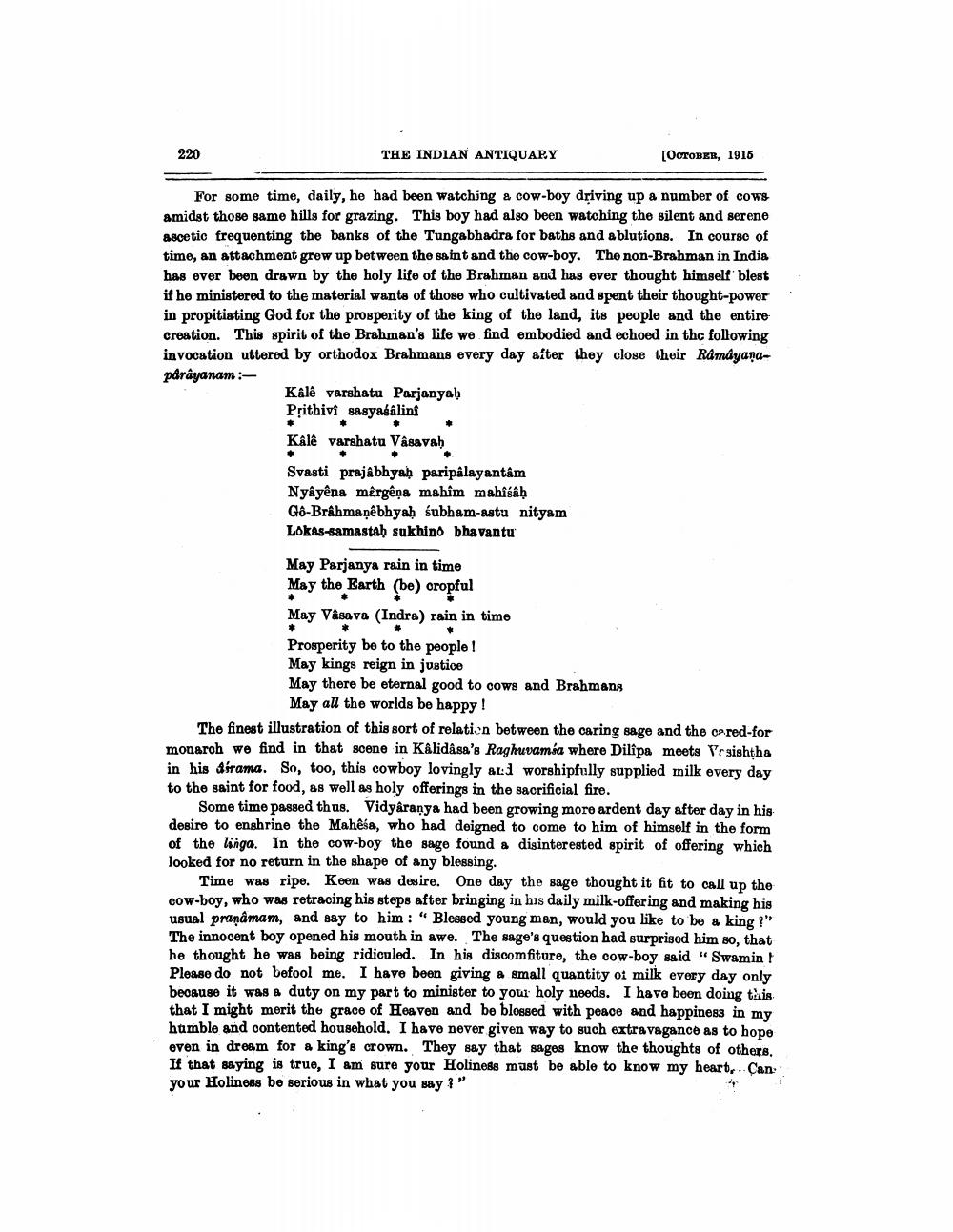________________
220
THE INDIAN ANTIQUAP.Y
[OCTOBER, 1916
-
For some time, daily, he had been watching a cow-boy driving up a number of cows amidst those same hills for grazing. This boy had also been watching the silent and serene ascetic frequenting the banks of the Tungabhadra for baths and ablutions. In courso of time, an attachment grew up between the saint and the cow-boy. The non-Brahman in India has ever been drawn by the holy life of the Brahman and has ever thought himself blest if he ministered to the material wants of those who cultivated and spent their thought-power in propitiating God for the prosperity of the king of the land, its people and the entire creation. This spirit of the Brahman's life we find embodied and echoed in thc following invocation uttered by orthodox Brahmans every day after they close their Ramayanaparayanam :
Kalê varshatu Parjanyah Přithivi sasya âlini
Kalê varshatu Vâsavah
Svasti prajabhyah paripalayantâm Nyâyêna mêrgêņa mahîm mahiśaḥ Gô-Brâhmanêbhyaḥ śubham-asta nityam Lokas-samastah sukhino bhavantu
May Parjanya rain in time May the Earth (be) cropful May Vasava (Indra) rain in time Prosperity be to the people! May kings reign in justice May there be eternal good to cows and Brahmans
May all the worlds be happy! The finest illustration of this sort of relation between the caring sage and the cared-for monaroh we find in that soene in Kalidasa's Raghuvamia where Dilîpa meets Vrsishtha in his drama. So, too, this cowboy lovingly 1:1 worshipfully supplied milk every day to the saint for food, as well as holy offerings in the sacrificial fire.
Some time passed thus. Vidyaranya had been growing more ardent day after day in his desire to enshrine the Mahesa, who had deigned to come to him of himself in the form of the linga. In the cow-boy the sage found a disinterested spirit of offering which looked for no return in the shape of any blessing.
Time was ripe. Keen was desire. One day the sage thought it fit to call up the cow-boy, who was retracing his steps after bringing in his daily milk-offering and making his usual pranamam, and say to him: "Blessed young man, would you like to be a king?" The innocent boy opened his mouth in awe. The sage's question had surprised him so, that he thought he was being ridiculed. In his discomfiture, the cow-boy said "Swamint Please do not befool me. I have been giving a small quantity of milk every day only because it was a duty on my part to minister to your holy needs. I have been doing tuis. that I might merit the grace of Heaven and be blossed with peace and happiness in my humble and contented household. I have never given way to such extravagance as to hope even in dream for a king's crown. They say that sages know the thoughts of others, If that saying is true, I am sure your Holiness must be able to know my heart, Can your Holiness be serious in what you say?"




